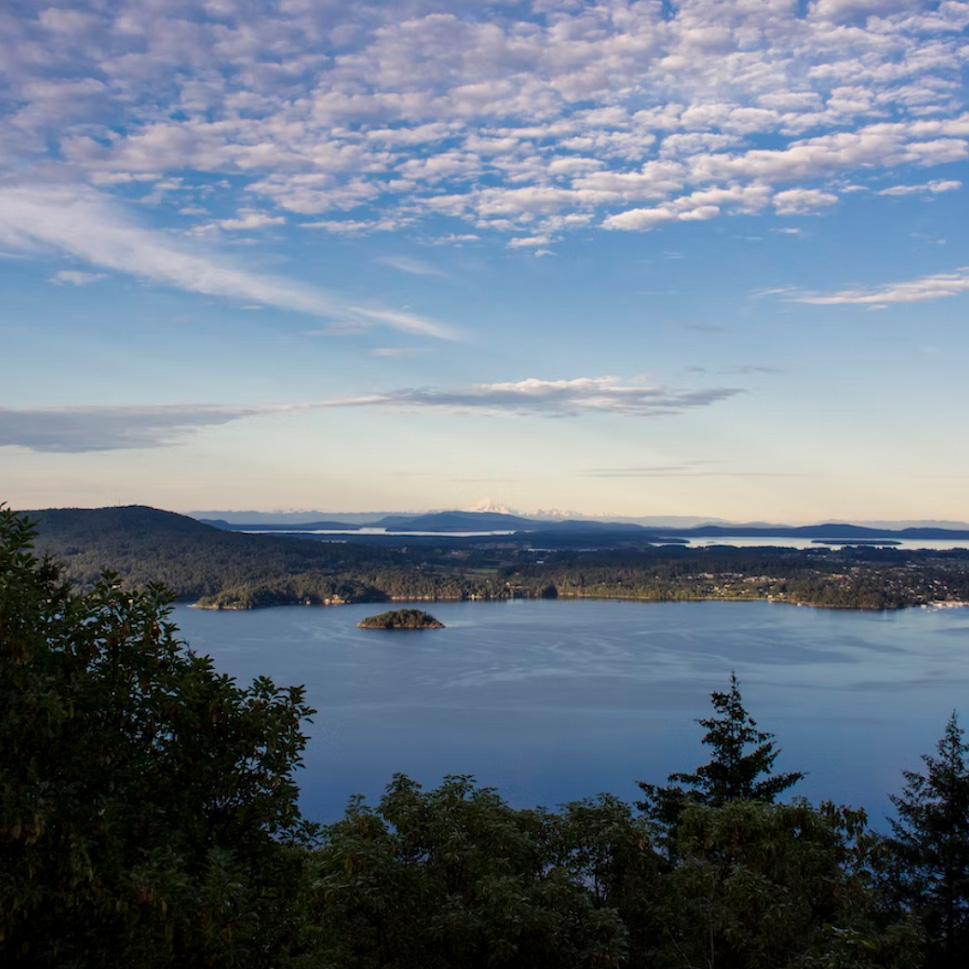December is known as the season of giving, and W̱SÁNEĆ Lands Trust is asking for one special gift this holiday season “in the spirit of reconciliation”: the gift of land back.

Land back is an Indigenous-led movement that isn’t as straightforward as just giving the land back.
While that’s part of it, Don Tom, chief of Tsartlip First Nation, explains that land back also has to deal with access.
“What it means to have land back is to restore that connection that we historically had to the land,” he said. “To have our people out on the land, to have the language be spoken on the land and to be able to have that connection once again in restoring the lands as they once were.”
The W̱SÁNEĆ Leadership Council Society, which started the lands trust, is made up of two W̱SÁNEĆ First Nations — Tsartlip and Tseycum.

In many cases, land back centres around the return of Crown land but for W̱SÁNEĆ, acquiring Crown land in their traditional territory — the Saanich peninsula — wasn’t possible, so they got creative and established the W̱SÁNEĆ Lands Trust.

Get breaking National news
“We looked at alternatives to solve how can we have our people back on the land? How can we have an opportunity to be stewards within our territory again?” Tom said.
“We saw lands trust being a successful avenue that I don’t think any Indigenous organization has gone down anywhere in Canada.”
Established in 2021 with the hope of restoring the lands to how they used to be, Tom said the lands trust has since accepted the return of 45.7 acres of land in the region.
“Initially when settlers came, the land that we occupied was much larger,” he said. “And through history we were removed from our lands and put on to smaller reserves and smaller reserves and smaller reserves — and ultimately we’re living on postage stamps of what used to be our territory.”
So for the holidays, the lands trust has land back at the top of their list.
“Land prices in our territories continue to increase, ecological outcomes continue to decrease, and properties continue to subdivide into smaller and smaller lots,” Tom said. “This means there is very little hope of achieving sustainable land base for people through reconciliation with the Crown.
“So while the present-day settlers may not have participated in the colonial practices over 150 years ago, settlers still benefit from these practices with higher average income rates of house and home in landowner ships than traditional stewards of the land on which they reside.”
The W̱SÁNEĆ lands trust says there are three ways people can get involved: returning the land, writing the return of the land in a will or making a donation to the cause.
“By supporting the lands trust land back movement,” said Tom, “people can take small steps to right the wrongs of the past and build a brighter future for everyone who lives within their territory.”










Comments
Comments closed.
Due to the sensitive and/or legal subject matter of some of the content on globalnews.ca, we reserve the ability to disable comments from time to time.
Please see our Commenting Policy for more.